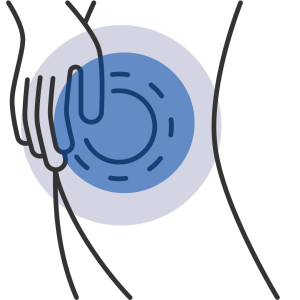
DEVELOPMENTAL HIP DYSPLASIA
Developmental dislocation of the hip is a condition caused by problems in the formation of the hip joint, usually in the prenatal period or during birth. This condition refers to the failure of the femoral head to sit correctly within the pelvis due to a misalignment of the components of the hip joint. If not diagnosed and treated early, developmental hip dislocation can negatively affect the child’s hip development.
Causes:
Genetic Factors:
Risk may increase in individuals with a family history of developmental hip dislocation.
Congenital Factors:
Pressure or stress on the hip joint during labor can increase the risk of dislocation.
First Birth and Daughters:
First birth, multiple pregnancies and girls are among the factors that increase the risk of developmental hip dislocation.
Lying Positions:
Lying positions that keep the legs straight and open for long periods of time can increase the risk of dislocation.
Symptoms:
Asymmetrical Leg Movements:
An asymmetrical mobility between the child’s legs can be seen.
Limping:
Limping or unsteadiness may be observed when the child walks.
Leg Length Difference:
One leg may appear shorter than the other.
Rattling or Clicking Sounds:
Clicking or rattling sounds can be heard in the hip area during movement.
Treatment Methods:
Pavlik Type Instruments:
In infants, Pavlik-type devices are usually used to try to keep the hip joint in the correct position..
Physical Therapy:
Physiotherapists perform special exercise programs to strengthen the child’s muscles and promote hip joint movement.
Child Orthotics:
Specially designed hip dislocation braces or hip dislocation splints can help keep the child’s legs in the correct position.
Surgical Intervention:
Surgery may be considered in severe cases or when other treatment methods do not work.
Developmental dislocation of the hip can usually be successfully managed with early diagnosis and treatment. Treatment may vary depending on the age of the child, the severity of the dislocation and other individual factors. It is important for parents to attend regular check-ups and follow expert advice.




.png)
.png)
.png)